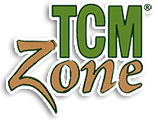Advancing Traditional Chinese Medicine: Recent Clinical Trials and Research Breakthroughs

By Xiyuan “Alex” Qiu, L.Ac. f
For professional acupuncturists and herbalists, staying informed about recent clinical trials and research in Traditional Chinese Medicine (TCM) is essential to enhance your practice and build confidence among your patients. In this blog, we delve into some specific and recent clinical trials that provide valuable insights into the effectiveness of TCM, whether through acupuncture or herbal formulas, supported by rigorous modern-day scientific research.
Acupuncture for Chronic Pain Management
Recent clinical trials have reaffirmed acupuncture’s role in chronic pain management. A study published in JAMA Internal Medicine in 2021 examined the use of acupuncture for chronic pain, including osteoarthritis, chronic headache, and back pain. The results indicated that acupuncture was significantly more effective than conventional treatments in reducing pain severity and improving the quality of life in chronic pain patients. This study further underscores the role of acupuncture as a potent modality for pain management, showcasing its effectiveness beyond a placebo effect. Link to study here
Acupuncture for Migraine Relief

Herbal Formulas in Diabetes Management
The management of diabetes is a global health challenge, and TCM herbal formulas have been extensively researched for their potential in regulating blood sugar levels. A recent clinical trial, published in the Journal of Ethnopharmacology in 2022, investigated the effects of a specific TCM herbal formula on type 2 diabetes patients. The results demonstrated a significant reduction in fasting blood glucose levels, glycosylated hemoglobin (HbA1c), and improved insulin sensitivity. This study not only underscores the potential of TCM herbal formulas in diabetes management but also exemplifies the synergy of modern research and TCM principles. Link to study here
TCM Herbal Formula for Allergic Rhinitis

These recent clinical trials in TCM demonstrate its growing recognition and effectiveness in various healthcare domains, from pain management to chronic conditions. As professional acupuncturists and herbalists, it is crucial to stay informed about these studies and incorporate the findings into your practice. By aligning your TCM knowledge with modern scientific research, you not only enhance your credibility but also provide evidence-based solutions to your patients, contributing to the wider acceptance of Traditional Chinese Medicine in the modern healthcare landscape. Continuing to stay updated on clinical trials and research in TCM ensures that you are at the forefront of this dynamic and evolving field, benefiting both your practice and your patients.
*The information provided here is for healthcare professional practitioners only. These statements have not been evaluated by the Food and Drug Administration. This product is not intended to diagnose, treat, cure or prevent any disease.

